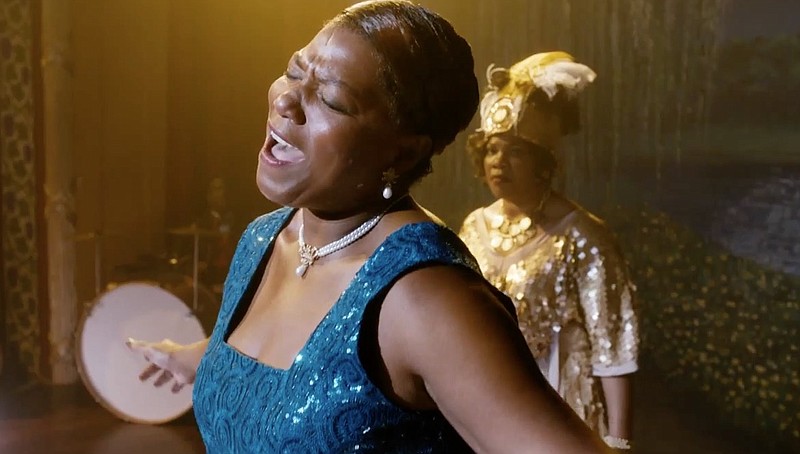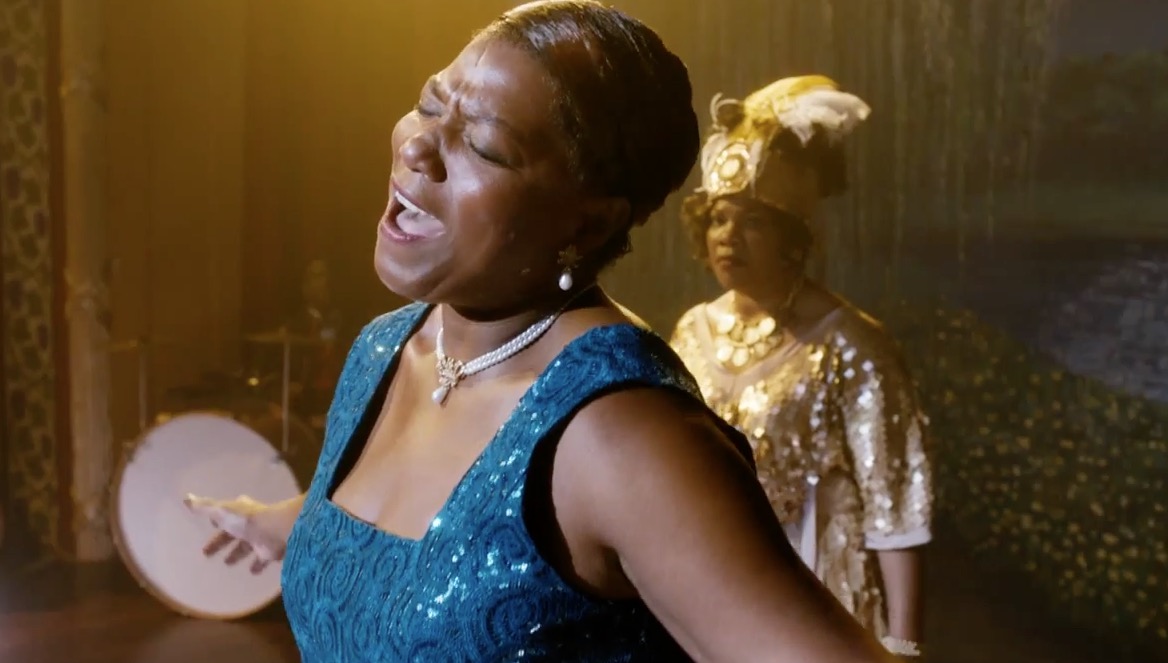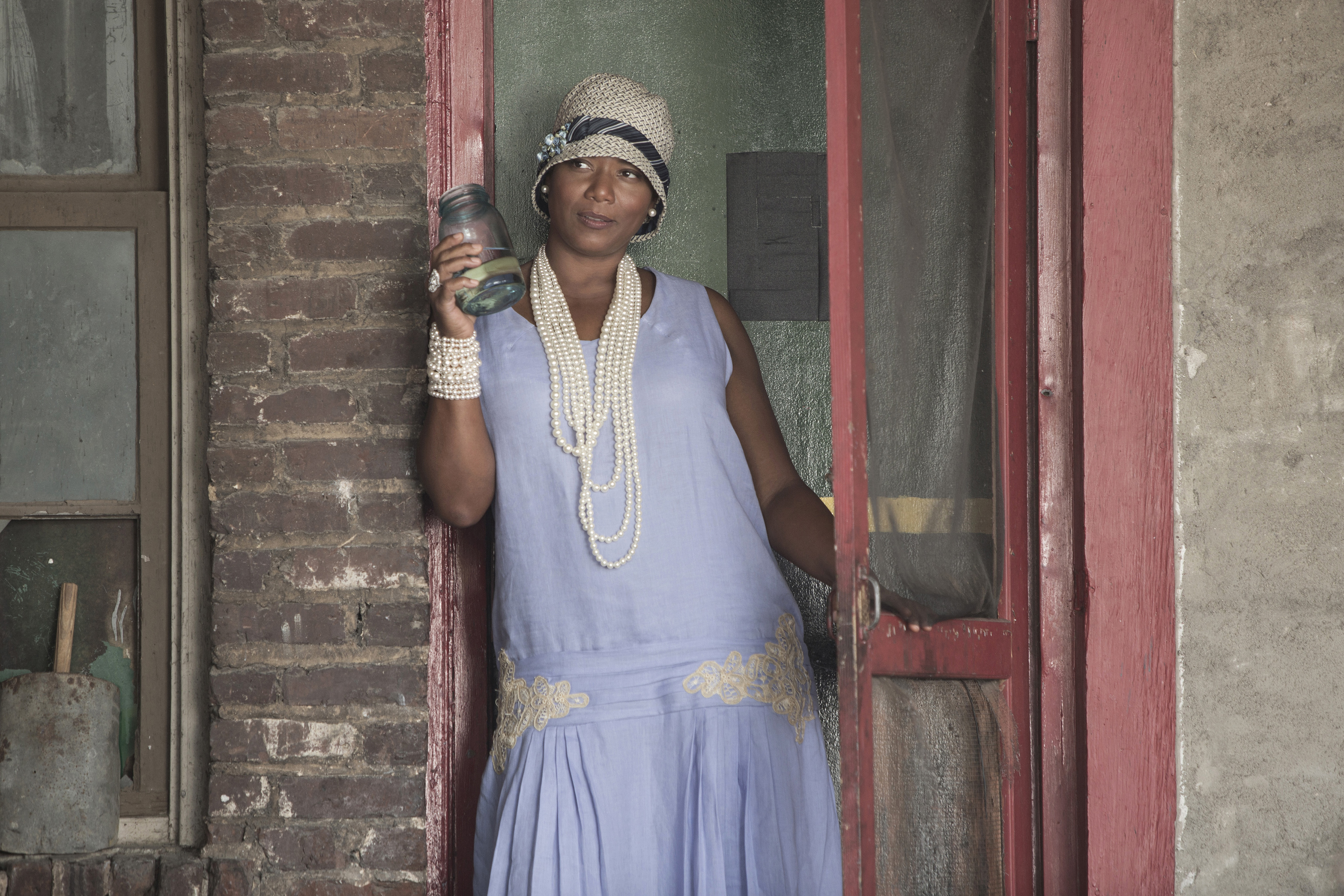The City of Chattanooga has partnered with HBO Films to bring a special screening of the movie "'Bessie" to her birthplace.
Tickets are sold out for the free showing, but there will be a reception at the Tivoli at 5 p.m. prior to the screening, complete with cars from the 1920s and '30s, Bessie songs and live music. A local vintage photographer will be taking photos, according to a news release.
Read more
Chattanooga musicians discuss legacy of Chattanooga's Bessie Smith
Many viewers will come to the HBO biopic "Bessie" with scant knowledge of its subject, blues legend and Chattanooga native Bessie Smith.
But in the title role, Queen Latifah schools you with a bruising display of fierce drive, unstoppable talent and a gallery of personal demons.
"I felt like it was the role of a lifetime," says Queen Latifah, 45, a multifaceted entertainer who has scored as a rap artist, sitcom star, talk-show host and movie actress in such films as "Chicago" and "Hairspray."
Premiering Saturday at 8 p.m., "Bessie" mainly covers Smith's adult life after she left Chattanooga and began her rise to fame through such blues standards as "Downhearted Blues," "Gulf Coast Blues," "The St. Louis Blues" and "Nobody Knows You When You're Down and Out" all of which came out between 1923 and 1929 and earned her the title "Empress of the Blues." The biopic also looks at her rocky marriage to Jack Gee, her bisexuality and long-running relationship with Lillian Simpson, and her drinking. She died in Clarksdale, Miss., in 1937 from injuries suffered in a car wreck while driving to a concert in Memphis.
The film on Smith was in development for more than 20 years, with Latifah always pegged to play a person she knew little of in the beginning.
"There was no Google when this movie came to me," she says. "It wasn't like I could just pull it up on a computer and find out about her. So I bought the box set and started listening to her music. And initially I was terrified, because this music is so different, her voice is so different, from mine."
The long delay was, in effect, a blessing, since it gave Queen Latifah a chance to "grow" into the role and to get more acclimated to her own singing voice.
"I was able to figure out the parts that we could connect on, the parts of her way of singing that I could emulate in my way to show her style without being intimidated by the fact that I don't have that voice -- she's a powerhouse. The music really helped me get closer to her, quicker, to really connect with her. She wrote all those songs: By learning them, I was able to feel her more."
So intense was the connection during filming, Queen Latifah at times felt she could summon Bessie Smith from the great beyond.
"I would pray: Bessie help me out, help me do it the way you want it done, help me really be you. I hope I did a good job in her eyes, wherever she is in that great place in the sky. Because I didn't have a lot of reference: her music and 'St. Louis Blues' (a 1929 two-reeler in which she starred), which is the only footage of her."
Queen Latifah found herself asking questions: "Why did she need this guy, and why did she need this woman? And why can't she say 'I love you?' And why did she have to eat so much and drink so much and party so much?'"
Discovering those answers called for her furious performance, including a bare-chested scene, a brutal fight with her husband, Jack (Michael Kenneth Williams), and bedroom scenes with Lucille (Tika Sumpter), another of the bisexual Bessie's romantic partners.
"All that's what the role required," says Queen Latifah matter-of-factly. "You have to honor the character. This is her truth. You may feel uncomfortable with certain scenes, but there are a lot of things to feel uncomfortable about: I was uncomfortable with her drinking too much, or getting stabbed and going right back on stage. And fighting with your man: The scenes with Mike where we had to fight were more draining than any kissing scenes with Tika.
"But who am I to not play her to the bone! Talk about 'The show must go on'! This woman literally got stabbed, left the hospital, and went out and performed."
The biggest challenge, she says, was the limited time -- just days -- between wrapping production of last season's "The Queen Latifah Show" before heading to Atlanta to join director Dee Rees and fellow cast members for the "Bessie" shoot. Hosting her talk show, she could revel in being herself (which helps account for her disappointment at its recent cancellation), whereas the film obliged her to inhabit a complex character much different from herself from an era long past.
"But, for me, who lives for a challenge, this was perfect," she insists. "I need to feel the wind in my face. I need to feel the fear and do it anyway. That's how I feel about characters that require that type of dedication. I can't worry about Queen Latifah -- who I am has to go out the window when you're playing this character. 'Let's drive! Let's take the seatbelt off and do a hundred! Let's go!' That what it requires!"


